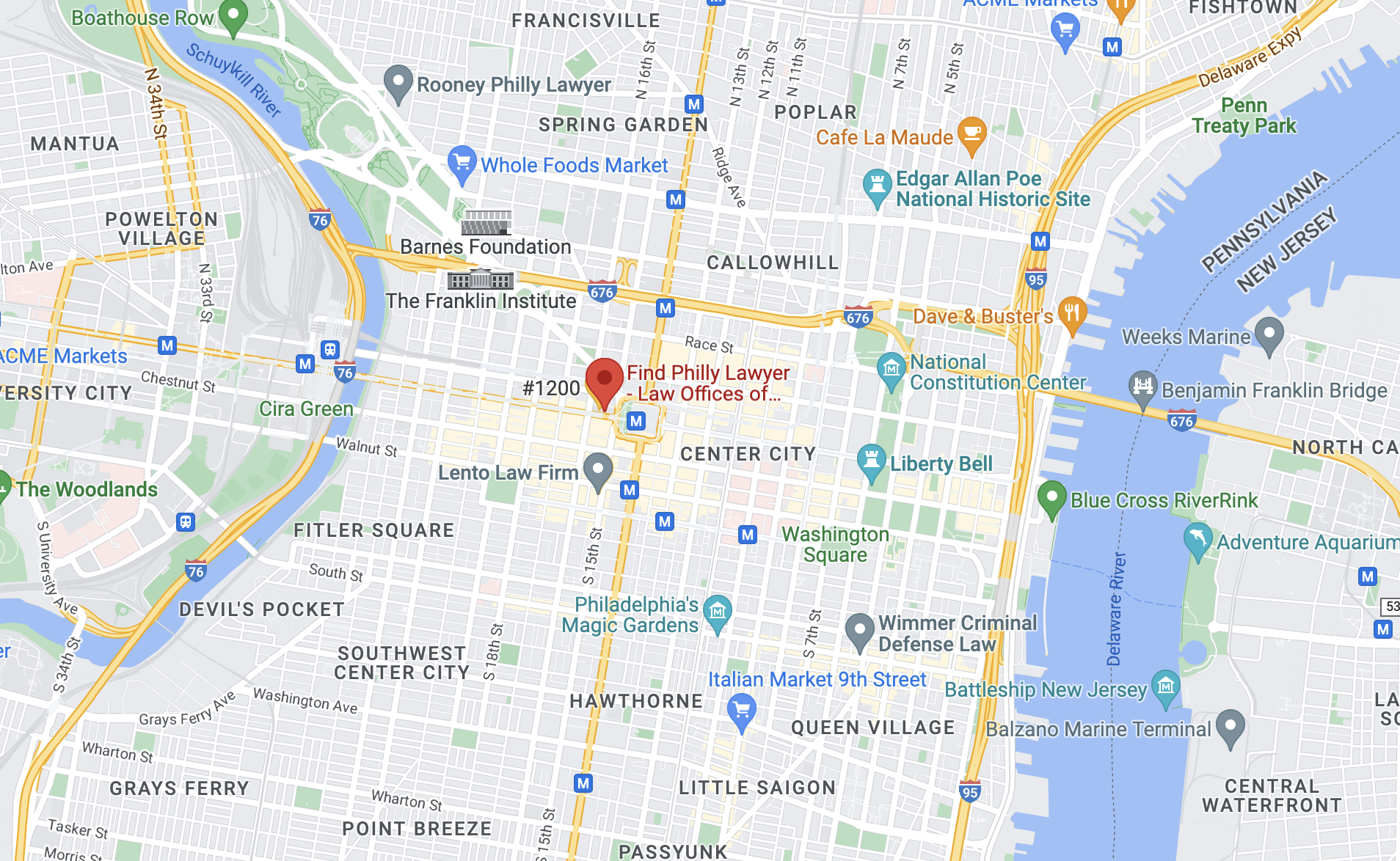Theft is a serious crime to be accused of. While some types of theft are misdemeanors, you could end up with a felony on your record if convicted of more serious kinds of theft. Regardless, a conviction for any form of theft will have serious implications on your life.
With your reputation and personal freedom at stake, it is important that you have seasoned legal counsel representing you in the face of a theft charge. Our attorneys have a wealth of experience defending clients accused of theft. We will fight hard and exhaust every legal option available to get you a favorable outcome in your case.
The Liberty Law Team have theft defense lawyers ready to talk about your case at (215) 826-3314.
Types of Theft in Montgomery County, PA
Pennsylvania has many types of theft outlined in Title 18, Chapter 39, Subchapter B of Pennsylvania Consolidated statutes. Each offense is slightly different, so going over your particular case with our theft defense lawyers can be useful to determine which specific theft offense you are being charged with and the best defense to mount on your behalf. We will discuss the various types of theft offenses in Pennsylvania below.
Theft by Unlawful Taking
Theft by unlawful taking is defined under 18 Pa.C.S. § 3921 as the unlawful taking or control of the property of another with intent to deprive them of their property.
Unlawful taking means that you did not have a legal right to possess or take ownership of the property. For example, if your friend lets you borrow their water bottle, that is not theft because you had permission from the bottle’s owner to take it. Moreover, you likely intended to return it to your friend, so there is no intent to deprive them of it. However, if in the interim you decide to keep the water bottle, that would be theft. Another example of theft by unlawful taking would be stealing a wallet somebody left on a table.
Theft by Deception
Theft by deception is stealing through trickery. 18 Pa.C.S. § 3922 defines theft by deception as intentionally taking and holding the property of another through the use of lies. First, it is theft by deception to create a false impression in order to obtain something. A false impression could be misrepresenting who you are, why you need an item, or your intent to return the item later. For example, it would be theft by deception to ask to borrow somebody’s shirt, promising to have it cleaned and returned to the person later, intending never to return the shirt.
It is also theft by deception to fail to correct a false impression somebody has. For example, if you put up a fake advertisement on the internet to sell a mattress, asking for money upfront as well as providing reassurance that you will, in fact, be delivering a mattress, accepting money from a potential buyer would be theft by deception.
Theft by Extortion
18 Pa.C.S. § 3923 defines theft by extortion as obtaining the property of another through threats to do something if you do not get the property in question. For example, threatening to commit a crime or exposing personal information given in confidence if you do not receive something would be considered theft by extortion.
Theft of Misplaced or Mislaid Property
It is a crime to keep misplaced property in Pennsylvania. 18 Pa.C.S. §3924 criminalizes obtaining a property that is known to be lost or mislaid without taking reasonable measures to return the property to its owner.
For example, If you find a wallet on a park bench with a person’s identifying information inside but decide to keep the wallet’s contents for yourself, that would be theft of misplaced or mislaid property. Another example of theft of misplaced property would be receiving something valuable in the mail addressed to your neighbor but deciding to keep it for yourself.
Receiving Stolen Property
Receiving, retaining, or moving property known to be stolen is a crime in Pennsylvania under 18 Pa.C.S. § 3925. Individuals who traffic stolen items are likely to be charged with this offense in Pennsylvania. This also applies if you believe an item is likely to be stolen but take no action to return it. However, it is a defense if you receive stolen property but intend to return it to its rightful owner.
Retail Theft
Retail theft is stealing things from a store or shoplifting under 18 Pa.C.S. § 3929. Retail theft is sometimes graded differently than regular theft. Lower-value items stolen qualify for lower-level offenses, while higher values of stolen things can be misdemeanors or felonies.
Grading of Theft Crimes in Montgomery County, PA
Not all theft offenses are equally serious in Pennsylvania. There is a grading system that makes some kinds of theft more severe than others. 18 Pa.C.S. § 3903 covers the grading of theft offenses.
Third Degree Felonies
Theft is a felony of the third degree if it is of an amount greater than $2,000 or if the theft is of an automobile, airplane, or other motor vehicle. It is also a third-degree felony if you receive stolen property and are in the business of selling stolen property (e.g., a “fence”).
Second-Degree Felonies
It is a felony of the second degree if the theft is during a natural, manmade, or war-time disaster or if the property stolen in question is a firearm or anhydrous ammonia (used to manufacture meth). Additionally, if the value of what was stolen is greater than or equal to $100,000 but less than $500,000, it is a second-degree felony.
First-Degree Felonies
Theft is a felony of the first degree when the item stolen is a firearm, and the person receiving it is in the business of selling stolen property. It is also a first-degree felony when the amount stolen is $500,000 or more.
Theft as a Misdemeanor
All other kinds of theft are considered first-degree misdemeanors in Pennsylvania. For lower values of stolen items, the misdemeanor level gets lower. Theft is a second-degree misdemeanor for amounts greater than or equal to $50 and less than $200 and a third-degree misdemeanor for amounts greater than $50.
Call Our Montgomery County, PA Theft Defense Lawyers Today
Our theft defense lawyers at The Liberty Law Team can be reached at (215) 826-3314 for a free, confidential case review.



 Liberty Law Team
Liberty Law Team  (215) 826-3314
(215) 826-3314 lonny@libertylawteam.com
lonny@libertylawteam.com





